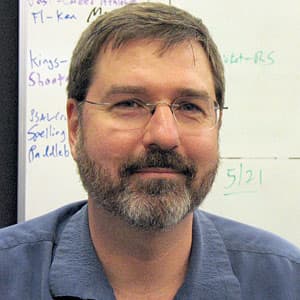Advertisement
Med School And The Major Leagues With Dr. — And Nurse — Baseball
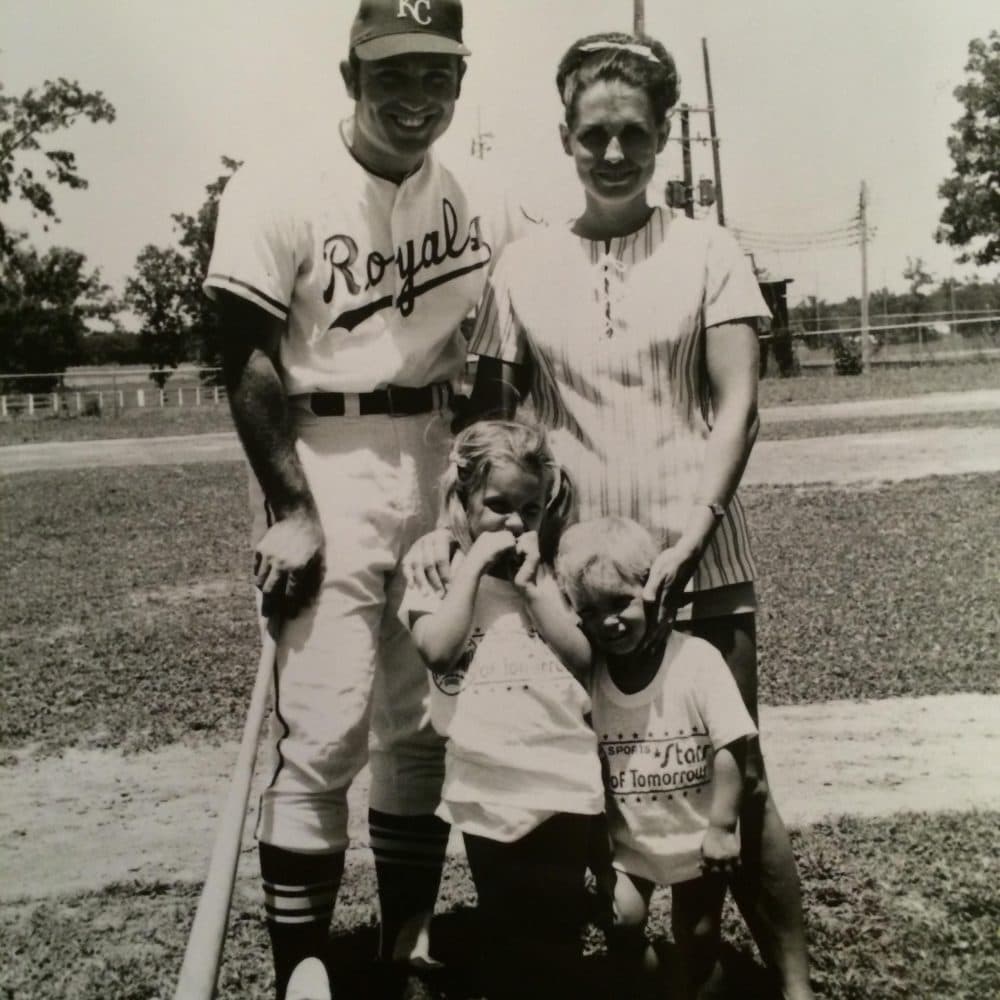
One night in 1964, in a Pepperdine University gym, Gail Hopkins joined a pickup volleyball match. That was the first time he met a senior named Caroline.
"Athletes on campus had a bad reputation, so it took a while for me to convince her I was a decent enough guy to go out with," Gail says.
"I turned him down the first three times he asked me out," Caroline says.
"So, she hunted around for about a week until she got a number of character references and before she’d answer any of my questions," Gail adds with a laugh.
Hopkins was a biology major and a star player on Pepperdine’s baseball team.
"I was very impressed by the size of his thighs," Caroline says. "I couldn’t believe that anybody had thighs that big. So, how’s that?"
That’s just fine, because after allowing Caroline a little time for the necessary gauging of character beyond thigh size, Gail made an important decision.
"Yeah, he proposed in two weeks," Caroline says. "Two weeks. So what can I say?"
Right after Caroline graduated with a bachelor’s degree in sociology, she married Gail. Thus began one of the great multitasking adventures in sports history.
'I Wanted To Play Professional Baseball And Be A Medical Missionary'
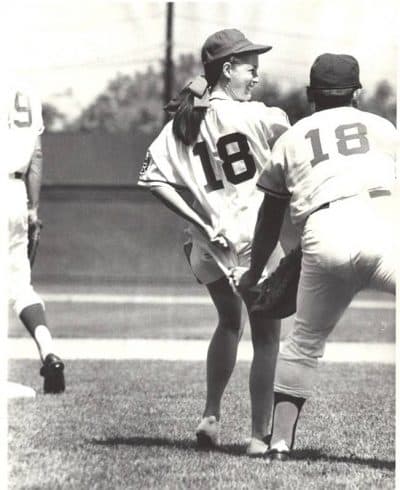
"She asked me what I wanted to do," Gail recalls. "So, I told her I wanted to play professional baseball and be a medical missionary. And she said …"
"Hmm … I think that’s three things," Caroline says. "Why don’t you pick one?”
"And I just laughed and said 'No, that’s what I wanna do,'" Gail says. "Right after we got married, we went up to Canada, and I started playing baseball for $25 a week."
"We played semi-pro in Canada for our honeymoon," Caroline continues.
Sounds romantic, doesn’t it? But the newlyweds were in Edmonton just for the summer, and Gail still had a degree to earn. The following two summers, he played minor league ball in Florida and California. He earned his bachelor’s degree from Pepperdine in 1966. Gail says that balancing academics with baseball and marriage wasn’t a problem.
"Once we were married, actually, I thought it got easier," he says. "Actually, my grades went up, so ..."
Advertisement
Gail stayed on at Pepperdine in California, where he worked on a master's in religion while also playing ball in the Carolina League. Meanwhile, Caroline earned a master's in education and began work as a school teacher to augment Gail’s modest minor league paycheck. Their balancing act was working.
But then there was a small bump along the way.
"After talking with the White Sox, I quit at the end of 1967 because Carol was pregnant, and took a job at Pepperdine University, teaching and working as a head baseball coach," Gail says.
"All that stuff is really only possible because of the kinds of contributions that Carol made in the whole process."
Gail Hopkins
When the first of their two children was born, Caroline stopped teaching. But soon the Major League bug bit Gail again. He returned to the White Sox farm system in 1968.
"And after six weeks, I was sitting in a movie theater in Birmingham, Alabama, and I got tapped on my shoulder, and I thought something was wrong with my wife or kid," Gail says. "Because the manager had to talk to me real urgent. So, I walked out into that lobby, and he told me I gotta go get dressed, I’m going to Chicago. They called me up to the big leagues."
Onto The Majors — And More School
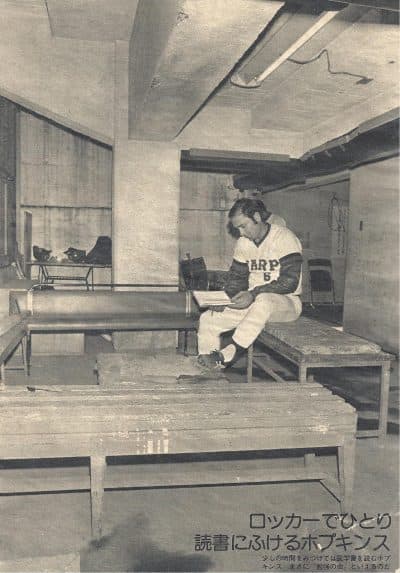
Gail Hopkins made his major league debut on June 29, 1968. The utility first baseman became one of the most reliable pinch hitters in the Major Leagues.
"It was great, you know, exciting and new," Gail says. "And, of course, I was getting to play against Mickey Mantle, those kinda guys. It was pretty cool, actually."
But the call of academia persisted.
"After the first year, I started a graduate program at the Illinois Institute of Technology," he says. "So, I was playing ball in Chicago and going to graduate school, and I thought I had it made.
He did have it made, if your idea of "having it made" includes trying to figure out how to hit Major League pitching while studying DNA mutation and fungi. But Gail Hopkins has a rare quality which made all that possible.
"He can survive, and did easily, on, like, three hours a night of sleep," Caroline says. "I can’t do that. But he could."
"I do have the ability to stay up late, work long hours and still be rested," Gail says. "You know, when I went on road trips, I would take my books and my papers and I would read them. When I went to Boston, for instance, I went to the Harvard Library."
"When all the guys were going out and drinking or doing other things, he was studying," Caroline continues. "And he would study in the bullpen and he would study all the time."
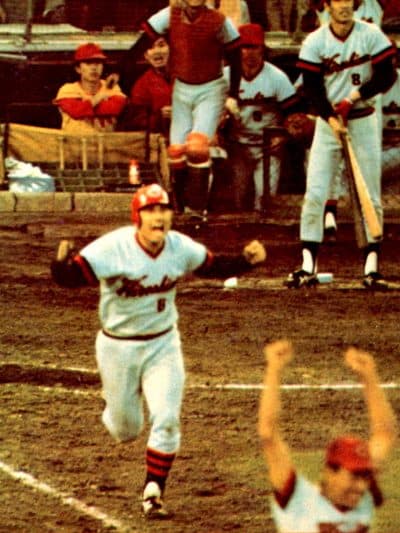
"We used to play night games, but then I’d get up in the morning and I’d do my work," Gail adds. "I did a lot of that stuff, though, in my room. Half of my suitcase would be filled up with books or material that I was taking with me."
Gail played three seasons for the White Sox and earned his Ph.D. in biology and biochemistry. He was traded to Kansas City and played three seasons with the Royals. He won a World Series ring in 1974 with Los Angeles and set sights on his next goal.
A Winning Team
"In '74, I quit at the end of the season with the Dodgers and was gonna go to medical school in Mexico," Gail says. "But a guy came to my house, and he offered me a job to play for the Hiroshima Carp. He offered me what amounted to a $70,000 contract. OK, the average major league salary that year was $36,000. The most I’d ever made was $31,000. This was an opportunity to go play baseball in Japan for one year, and that would help really pay for our medical school."
The Hopkins moved to Japan, where the new challenge was to raise their children in a foreign country and to help revive a terrible team.
"The joke was 'Where are the Carp? They’re at the bottom like they always are,'" Gail says. "All they’d ever done was lose. Well, I had a great season. I broke the club’s home run record. And then I hit a home run at the next-to-last game of the regular season to win the championship."
Gail began his medical studies remotely while playing pro ball in Japan for three seasons. He retired from baseball in 1977. After more than 30 moves in 13 years, during which time they had never been together once on their wedding anniversary, Caroline and Gail returned to the U.S. Gail finished his medical degree at Rush Medical College. And Caroline had ambitions of her own.
"Well, when he was in medical school, I decided that if we were going to do medical missionary work, I would rather have my own credentials and not just be the wife that was helping," Caroline says. "So I went to nursing school and got my RN degree."
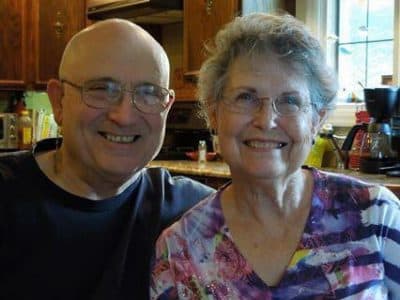
That was the last, or perhaps just the latest, of Caroline’s five degrees. She worked as a nurse, but the Hopkins never did medical missionary work — Gail’s specialty is orthopedic surgery, and he says getting the proper equipment to remote locations is just about impossible.
Gail also earned five degrees, adding a master's in divinity for good measure. He’s now 74 years old. He’s thankful for his 28 year medical career and proud of what he accomplished on the diamond, but …
"All that stuff is really only possible because of the kinds of contributions that Carol made in the whole process," Gail says.
"That is true, and I’m glad he recognizes it," Caroline says with a chuckle.
This segment aired on May 27, 2017.
